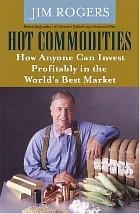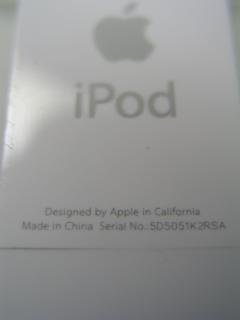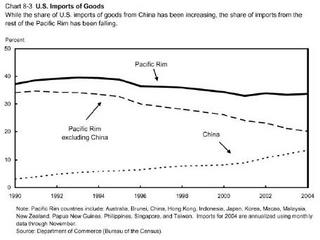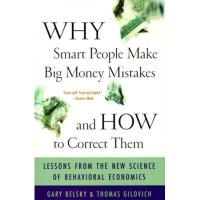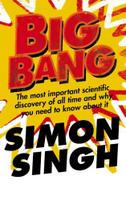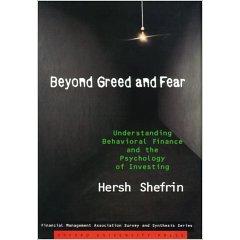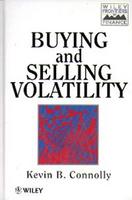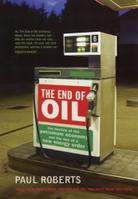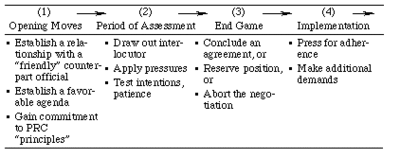
The Linear Process of PRC Political Negotiations
How to negotiate with China Gov't ? How to read China's behaviour in international affairs ? How do China shape HK political landscape ? How China play on Taiwan politic ? How do Central Govt HK Liason Office "handle" HK political parties & media ?
Learn from the painful lesson of US govt from 1967-1984. "Chinese Political Negotiating Behavior, 1967-1984" is a must read for anyone who have to face China govt, no matter you are politican, journalist, businessman, analyst or fund-manager. Indeed this booklet had been the handbook of former HK Governor Chris Patten -- the last governor who pushed China Gov't to her limit. I have been shocked by how the analysis present in this little booklet still valid today.
In the mid-1980s, US thinktank - RAND (www.rand.org) contracted with the U.S. government to do a retrospective analysis of the official negotiations between the United States and the People's Republic of China (PRC) associated with the normalization of relations between the two countries. The study was in the tradition of earlier RAND research-- especially Fred C. Iklé's pathbreaking work of 1964[1]--and was designed to assess the way Chinese negotiators sought to manage the process of constructing a normal relationship with the United States. Such a study, it was assumed, would also provide a useful contrast with the "adversarial negotiations" that had characterized dealings between the two governments in the period between the Korean War years and the unproductive negotiations of the 1950s and 1960s at Geneva and Warsaw.
The principal investigator of the study, Richard H. Solomon, served as a staff member of the National Security Council during the initial years of normalization talks between the United States and the PRC and was already familiar with much of the negotiating record. Because the study drew on official negotiating documentation, the initial publication of the work was classified Secret, although an unclassified briefing summary was published by RAND in 1985.[2]
In 1994, a federal court action led to declassification of most of the 1985 study, based on a Freedom of Information Act suit that had been filed against the government by the Los Angeles Times. [thank to freedom of information !!!]
RAND is publishing the declassified parts of the study at this time because of the analytical and historical value of the work, and because of the continuing interest to the United States of managing effectively a relationship with a major country that is likely to be of even greater significance in world affairs in the coming century. The reader should be aware that about 10 percent of the original study was not declassified. The deletion of this material from the present publication, however, has not affected the presentation of the author's analysis or the flow of the material.
The book can be ordered on internet at RAND, alternatively, I have a copy for friends.
------------------------------------------------------------------------
Following are summary of the small handbook :
By Richard H. Solomon
Summary
This study of Chinese political negotiating behavior assesses patterns and practices in the ways officials of the People's Republic of China (PRC) managed high-level political negotiations with the United States during the "normalization" phase of relations between the two countries. It is designed to provide guidance for senior American officials prior to their first negotiating encounters with PRC counterparts and to establish control over the documentary record of U.S.-PRC political exchanges between 1967 and 1984.
This assessment is based on analysis of the official negotiating record of U.S.-PRC exchanges during this period (the memoranda of conversation--"memcons"--and reporting cables that document formal exchanges), interviews with more than thirty U.S. officials who have conducted political negotiations with the Chinese, and such additional materials as the memoirs of former senior U.S. government officials, Chinese press statements, and official PRC documentation.
The basic finding of this study is that Chinese officials conduct negotiations in a distinctive, but not unique, manner consisting of a highly organized and meticulously managed progression of well-defined stages. It is an approach influenced by both Western diplomatic practice and the Marxist-Leninist tradition acquired from the Soviet Union and through dealings with the international communist movement. Its fundamental style and most distinctive qualities, however, are based on China's own cultural tradition and political practices.
The most distinctive characteristic of Chinese negotiating behavior is the effort to develop and manipulate strong interpersonal relationships with foreign officials--a pattern termed here "the games of guanxi," or relationship games. This approach to politics is shaped by China's Confucian political tradition. The Chinese distrust impersonal or legalistic negotiations. Thus, in managing a negotiation they attempt to identify a sympathetic counterpart official in a foreign government and work to cultivate a personal relationship, a sense of "friendship" (you-yi) and obligation; they then attempt to manipulate feelings of good will, obligation, guilt, or dependence to achieve their negotiating objectives. The frequently used term "friendship" implies to the Chinese a strong sense of obligation for the "old friend" to provide support and assistance to China.
The Negotiating Process
American officials have characterized negotiations with the PRC as a linear process of sequential and relatively discrete stages which unfold as the two sides explore issues of common concern. This process is illustrated in the following table:
Opening Moves
PRC officials make a determined effort at the outset of a negotiation to establish a sympathetic counterpart official as an interlocutor, to cultivate a personal relationship (friendship) with him; they press for the acceptance of their principles as the basis of the relationship. They also seek to structure a negotiating agenda favorable to their objectives.
The Chinese view a political negotiation as reconciling the principles and objectives of the two sides and testing the other government's commitment to a relationship with the PRC. They do not see it as a highly technical process of haggling over details, in which the two sides initially table maximum positions and then move to a point of convergence through incremental compromises.
To establish a framework for a relationship, PRC officials will press their counterparts at the outset of a negotiation to accept certain general "principles" (such as those embodied in the Shanghai Communiqué of 1972). Such political ground rules are then used to constrain the interlocutor's bargaining flexibility as the negotiation proceeds and to test the sincerity of his desire to develop and sustain a relationship with China. Experience shows, however, that when a PRC negotiator wants to reach an accord, he can set aside the emphasis on principles and reach a concrete agreement that may appear to have little relationship to the principles that were seemingly essential early in the negotiation.
Period of Assessment
Chinese officials are skilled in protracting a negotiation to explore the limits of their adversary's views, flexibility, and patience. They will resist exposing their own position until their counterparts' stand is fully known and their endurance has been well tested.
Facilitating maneuvers. The Chinese try to conduct negotiations on their own territory, as this gives them maximum control over the ambience of official exchanges. They seek to establish a positive mood through meticulous orchestration of hospitality (cuisine, sightseeing, etc.), media play, banquet toasts, and protocol. They may attempt to minimize confrontation or differences of view through subtle and indirect presentation of their positions. They may communicate difficult messages through trusted intermediaries. And when they seek to avoid the breakdown of a negotiation, they may resort to stalling tactics or reach a partial agreement while reserving their own position on important issues on which they do not wish to compromise.
Pressure tactics.
PRC officials will resort to a variety of tactics to put an interlocutor on the defensive and make him feel he has minimal control over the negotiating process. They are skilled at making a foreign counterpart appear to be the supplicant or demandeur in the relationship. They play political adversaries against each other and may alternate hard and accommodating moods by shifting from "bad guy" to "good guy" officials. They may urge a foreign negotiator to accommodate to their position using the argument that if he does not, his "friends" in the PRC leadership will be weakened by failure to reach agreement. And they tend to put pressure on a sympathetic counterpart negotiator on the assumption that a "friend" will make a special effort to repair problems in the relationship.
The Chinese often present themselves as the injured party, seeking to shame an interlocutor with recitation of faults on the part of his government or his failure to live up to past agreements or to the "spirit" of mutually accepted principles. They are meticulous record-keepers and will hold a negotiator responsible for his past words and the commitments of his predecessors. They are skilled at using the press to create public pressures on a foreign negotiating team. And they may seek to trap a negotiator against a time deadline (so that he must make decisions under pressure).
The essential quality of Chinese pressure tactics is to make the foreign negotiator, with whom they have gone to some lengths to develop a personal, or "friendly," association, feel that his positive relationship with China is in jeopardy, that he has not done enough to warrant being considered an "old friend," and that he must do more for the relationship to justify Chinese support and good will. It is this tension of the relationship game that gives dealings with the Chinese much of their distinctive quality.
End Game
When PRC officials believe that they have tested the limits of their negotiating counterparts' position and that a formal understanding serves their interests, they can move rapidly to conclude an agreement.
They may let a negotiation appear to deadlock to test their interlocutor's patience and firmness, then have a senior leader intervene to cut the knot of the apparent deadlock. Agreements are usually reached at the very last moment of a negotiating encounter--or even just after a deadline has passed. Once Chinese leaders have decided to reach an agreement, their negotiators can be quite flexible in working out concrete arrangements.
Implementation
Chinese officials assess the manner in which a counterpart government implements an agreement as a sign of how seriously or sincerely that government views its relationship with the PRC. They press for strict implementation of all understandings and they are quick to find fault.
At the same time, Chinese officials sometimes give the impression that agreements are never quite final. They will seek modifications of understandings when it serves their purposes; and the conclusion of an agreement is the occasion for pressing the counterpart government for new concessions. If they are unable to fully implement an agreement themselves, however, they will ask the counterpart to "understand" their difficulties on the basis of friendship, or they will make excuses that put the burden of responsibility on the other party.
Discussion
Reflecting the workings of the relationship game, American negotiators describe their dealings with the Chinese as at once elating and frustrating. PRC officials can establish a positive mood when they want to build a constructive relationship; and they impress their U.S. counterparts as personally attractive, highly competent individuals with whom it is easy to deal at a human level. On the other hand, Chinese officials--who consider themselves the representatives of a once and future great power-- can adopt a self-righteous and lecturing air, presuming the right to criticize their "friends" (while being highly defensive of their own positions) and requiring that negotiations be conducted on their own terms.
The experience of countries that have established highly interdependent relations with the PRC has demonstrated that the Chinese can be highly demanding and manipulative of those on whom they have established a dependent relationship (as was the case with the "elder brother" Soviet Union in the 1950s), or self- righteously assertive in dealing with those who have established a subordinate relationship with them (as was the case with Albania in the 1960s).
Guidelines for Dealing with PRC Counterparts
This analysis suggests the following "lessons learned" that U.S. officials should keep in mind if they are to be more effective in dealing with PRC counterparts:
(1) Know the substantive issues cold. Chinese officials are meticulous in preparing for negotiating sessions, and their staffs are very effective in briefing them on technical issues. They will use any indication of sloppy preparation against an interlocutor.
Master the past negotiating record. PRC officials have full control over the prior negotiating record, and they do not hesitate to use it to pressure a counterpart.
(2) Know you bottomline. A clear sense of the objectives of a negotiation will enable a U.S. official to avoid being trapped in commitments to general principles and to resist Chinese efforts to drag out a negotiation. Incremental compromises suggest to the Chinese that their interlocutor's final position has not yet been reached.
(3) Present your position in a broad framework. The Chinese seem to find it easier to compromise on specific issues if they have a sense of the broader purposes of their interlocutor in developing a relationship with the PRC. They distrust quick deals, and they appreciate presentations that suggest seriousness of purpose and an interest in maintaining a long-term relationship with China.
(4) Be patient. Do not expect quick or easy agreement. A Chinese negotiator will have trouble convincing his superiors that he has fully tested the limits of his counterpart's position if he has not protracted the discussions. Assume you will be subjected to unexplained delays and various forms of pressure to test your resolve.
(5) Avoid time deadlines. Resist negotiating in circumstances where you must have agreement by a certain date. The Chinese will assume that your urgency to conclude a deal can be played to their advantage.
(6) Minimize media pressures. PRC negotiators use public expectations about a negotiation to pressure their interlocutors. Confidential handling of negotiating exchanges, the disciplining of leaks, and the minimizing of press exposure are taken by the Chinese as signs of seriousness of purpose. Negotiation via the press will evoke a sharp Chinese response.
(7) Understand the PRC political context and the style of your Chinese interlocutor. Despite the difficulties of assessing the domestic PRC political scene, an evaluation of internal factional pressures and the style of your counterparts will help in understanding Chinese objectives and the limits of their negotiating flexibility, as well as in reading the signals or loaded language of a very different culture and political system.
(8) Understand the Chinese meaning of friendship. Know that the Chinese expect a lot of their "friends." Resist the flattery of being an "old friend" or the sentimentality that Chinese hospitality readily evokes. Do not promise more than you can deliver, but expect that you will be pressured to honor past commitments. Resist Chinese efforts to shame or play on guilt feelings for presumed errors or shortcomings.
(9) Develop a strategic orientation to dealing with the Chinese. The blandishments of the friendship game and Chinese pressure tactics are most effectively defended against by developing a strategic orientation suited to American negotiating practices and objectives. An attitude of restrained openness and interest in identifying and working to attain common objectives is the best protection against Chinese efforts to maneuver the foreign negotiator into the position of demandeur or supplicant.
(10) Parry Chinese pressure tactics in order to maintain control over the negotiating process. Chinese negotiating tactics are readily understandable and, in some measure, even predictable. Therefore, U.S. negotiators should develop countertactics that will parry PRC maneuvers and will demonstrate competence and control over the negotiating process. Tactical manipulations applied in excess or for their own sake, however, are likely to erode confidence and undermine the credibility of a negotiation.
[1]Fred Charles Iklé, How Nations Negotiate, New York: Harper and Row, 1964.
[2]Richard H. Solomon, Chinese Political Negotiating Behavior: A Briefing Analysis, R-3295, Santa Monica: RAND, 1985.
